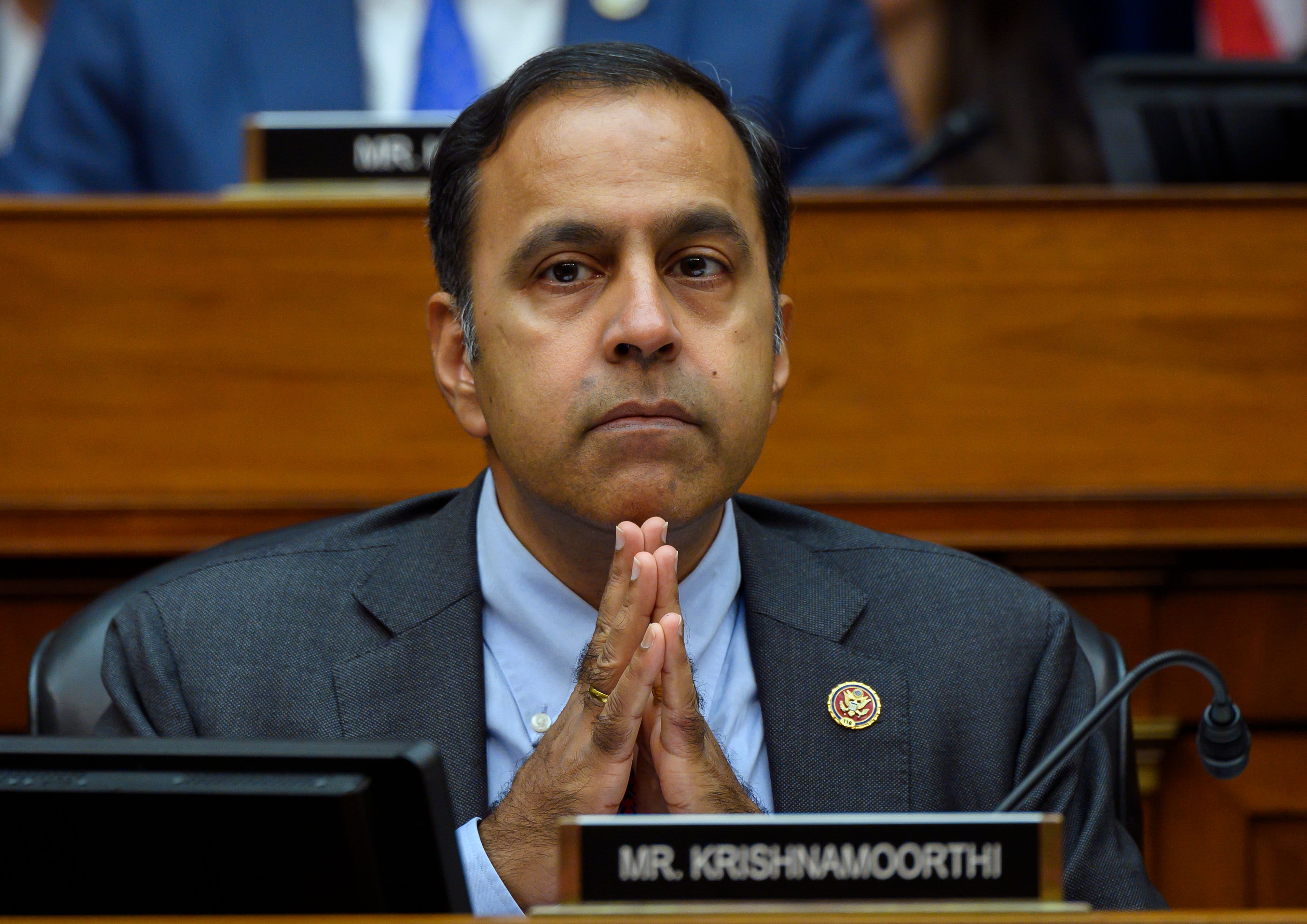US Representative Raja Krishnamoorthi, Democrat of Illinois, looks as Acting Director of National Intelligence Joseph Maguire arrives to testify before a hearing of the House Permanent Select Committee on Intelligence on September 26, 2019, in Washington, DC.
Andrew Caballero-Reynolds | AFP | Getty Images
A House panel is requesting a slew of documents from Reynolds after the company ignored the committee’s request to stop advertising its e-cigarettes.
Rep. Raja Krishnamoorthi, chairman of the House Oversight and Reform committee’s panel on consumer products, last month requested Reynolds American, Fontem Ventures, Japan Tobacco International and NJOY to stop advertising e-cigarettes.
Market leader Juul, which is partially owned by tobacco giant Altria, announced it would end all product marketing ahead of the letter’s publication. NJOY in response to Krishnamoorthi’s letter said it will stop advertising its e-cigarettes, the congressman said.
“Two of your competitors have already confirmed that they will not be advertising their products going forward, and we expect more confirmations to come soon,” Krishnamoorthi, D-Ill., said in the letter addressed to Reynolds CEO Ricardo Oberlando. “Your company, however, has given no indication that it plans to halt its advertisements.”
Krishnamoorthi asks for a number documents, including a list of all advertising, a list of all celebrities or social media influencers the company has worked with, all discounts and promotions the company has run and all documents relating to the effect of the company’s marketing strategy on minors. Krishnamoorthi requests the documents by Oct. 24.
Reynolds doesn’t have to abide by Krishnamoorthi’s request since Congress doesn’t have the authority to compel it to stop advertising. But lawmakers can use their investigative authority to pressure a company into compliance with document requests and other tactics that can tie up internal resources.
Reynolds, a unit of global tobacco giant British American Tobacco, did not immediately respond to CNBC’s request for comment.
